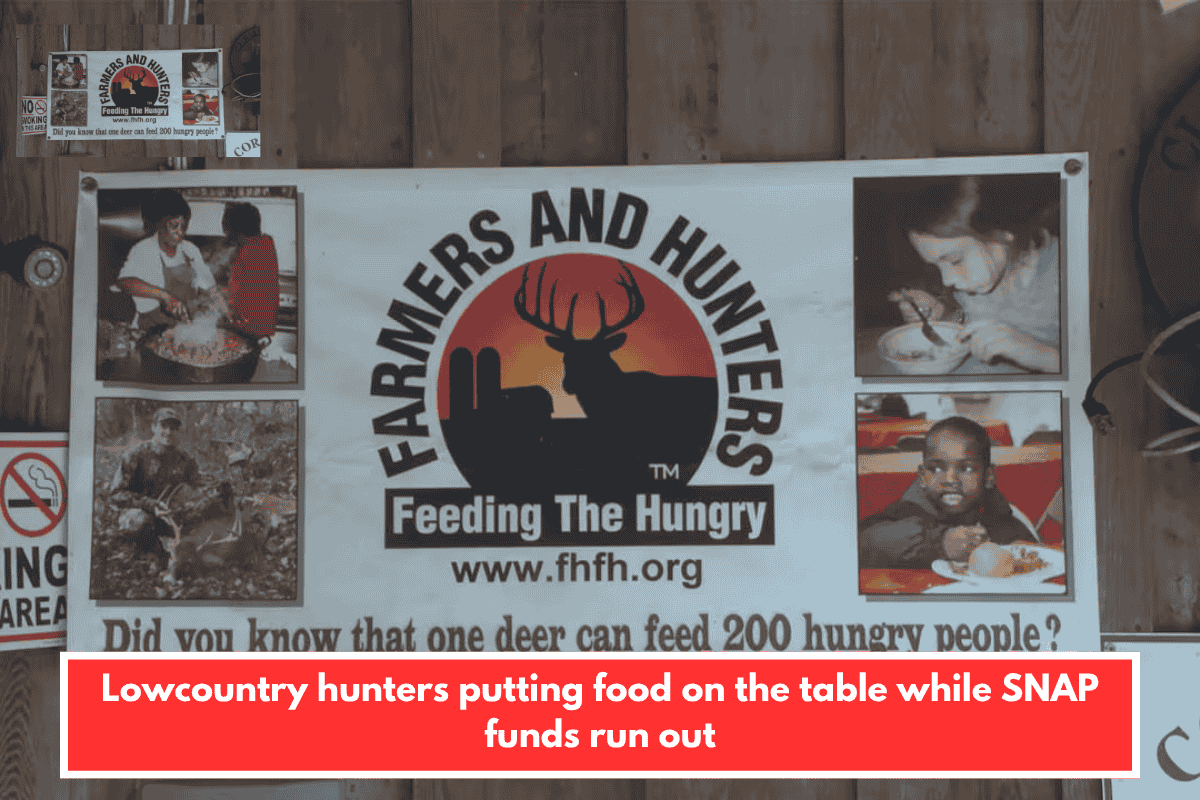Charleston, South Carolina – For hundreds of years, South Carolinians have hunted in Charleston’s woodlands to feed their towns and support their families.
With grocery stores on every corner, hunting is no longer as popular as it once was, but hunters continue to provide meat for their families.
“You know, it is surprising. Near the conclusion of the season, we definitely see an increase in meat donations. These are people that have enough food in their freezers and wish to give back to their community. “They heard about us, so they bring their harvest to Cordray’s,” said Trey Hopkins, chair of the local Farmers and Hunters Feeding the Hungry chapter.
Hopkins believes that regardless of what happens in politics, there is always a responsibility to assist feed the needy.
“Every year, whether it’s SNAP benefits that are at risk or if things are going well, we just like to keep doing what the community needs,” Hopkins told me.
The idea is simple. Hunters send their harvested deer to Cordray’s Processing and Taxidermy, and FHFH pays to have the animal processed. Cordray’s completes the task at or below cost, providing their services at a significant discount.
The meat is then sent to approved 501(c)(3) groups that help feed the hungry. Farmers & Hunters According to Feeding the Hungry, one deer may feed up to 200 people.
“There has been an ongoing demand for many years. I took over this chapter in 2015, and since then, we’ve provided around 30,000 pounds of meat to local soup kitchens and other feeding ministries,” Hopkins stated.
There are numerous reasons why FHFH is special, but probably the most essential is the product they donate.
“Soup kitchens have such a hard time getting fresh protein,” says Hopkins. “They frequently receive baked foods with a short shelf life, as well as meats of inferior quality. This is fresh, clean protein that directly benefits the community.”
Hopkins claims they can contribute between 2,000 and 4,000 pounds of meat per season, with each pound feeding around four to five people.
FHFH has made donations to Meals on Wheels of Summerville. Crystal Bovell, Executive Director, says they know how to maximize the impact of your investment.
“We’ve been a benefactor of theirs for years, converting beautiful meat that they won’t use into chili, spaghetti, and other dishes. So that’s quite useful,” Bovell remarked.
With the government shutdown jeopardizing Supplemental Nutrition Assistance Program payments, even organizations like Meals on Wheels, which receive no government support, are feeling the strain.
“We have seen a huge influx, and that’s not even addressing the issue of the federal funding cuts,” Bovell told reporters. “All of the other agencies are at capacity, with waitlists and indeterminate solutions. So we’re seeing that transition where they say, ‘Well, we can’t help them, but we’ll send them to you.'”
While the federal shutdown has brought attention to food insecurity, organizations such as Meals on Wheels and FHFH have been combating the issue for years, mostly undetected.
“We serve over 200 meals, basically three times a week,” Bovell told me. “We have 21 routes currently. We have over 250 volunteers that are truly the foundation of what we can accomplish. They pick up our meals and deliver them for free. “That’s like driving from here to California and back seven times.”










